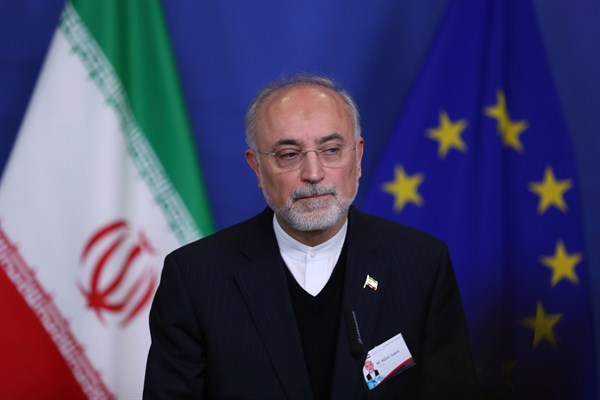Relations between Iran and the European Union seemed to enjoy something of a honeymoon just after President Donald Trump announced he was pulling the United States out of the 2015 agreement limiting Tehran’s nuclear program. But it is becoming increasingly evident that any warm feelings engendered by a joint commitment to preserve the Iran deal and stand against Trump have cooled significantly. Europe and Iran are now growing farther apart amid accusations that the Islamic Republic is engaging in behavior that Europe cannot countenance. The nuclear deal itself could ultimately collapse in the acrimony.
Last May, when Trump announced the U.S. was unilaterally withdrawing from the Joint Comprehensive Plan of Action, or JCPOA—the awkwardly named agreement that was the centerpiece of the Obama administration’s Middle East policy—Europe, along with Russia and China, vowed that they remained determined to prevent the deal from unraveling. A few months later, on the sidelines of the United Nations General Assembly in New York, leaders gathered with Iranian Foreign Minister Mohammad Javad Zarif and issued a statement reaffirming their vow.
That meeting, as it turns out, was the high watermark of solidarity between Europe and Iran. Despite Europe’s wishes to strengthen ties with Tehran and deny a hostile Trump any source of satisfaction, Iran’s activities—including ballistic missile launches, assassinations on European soil, and military activities in Syria—have become impossible to ignore. For months, the enmity mostly kept bubbling under the surface, but now it has exploded into full view.

